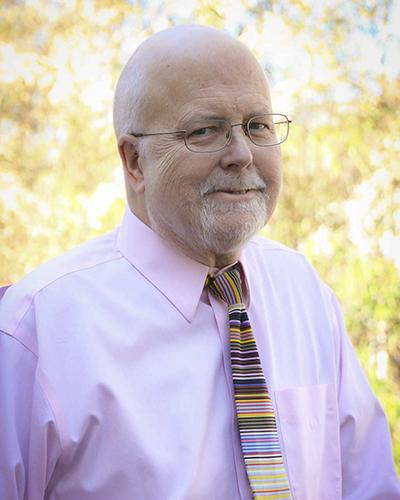When Mason McAllister was teaching at SMPA, he told his students the same advice he gave to his own children — to learn as much as they can.
McAllister, a former adjunct professor who taught newspaper editing and design for 30 years in the School of Media and Public Affairs, died this past month. He was 70 years old.
After a two-year battle with pancreatic cancer, McAllister died on Aug. 27, The Washington Post reported. He retired from GW in the spring of this year.
Marcia McAllister, McAllister’s wife, remembered his love for teaching and interacting with students.
“He wanted so much to instill his knowledge in young, budding journalists,” Marcia McAllister said. “He loved seeing his students develop and watching what they did with their careers.”
Mason McAllister decided early on that journalism was his path, his wife said. Mason McAllister, who was from Warner Robins, Ga., was editor of Georgia State University’s paper, The Signal, during the civil rights movement. In 1966, he wrote an editorial praising President Lyndon B. Johnson’s proposed legislation to prohibit discrimination.
“He really had the opportunity to see and to help, to have a role in changing attitudes in the South regarding civil rights,” Marcia McAllister said.
Mason McAllister came to GW in 1985 and soon began to notice a shift where more women were enrolling in his classes. He was happy to see journalism becoming a profession where women thrived, his wife said.
“He would just laugh and he had this twinkle in his eye,” Marcia McAllister said. “He was such an original feminist.”
Mason McAllister built a lengthy journalism career before teaching at GW. His resume includes copy editing for The Detroit Free Press and The Atlanta Constitution and 34 years with The Washington Post, where he was chief of the Style section’s copy desk.
Senior Marcelene Sutter said Mason McAllister made her feel at home in SMPA. She said that he was the driving reason behind her decision to minor in journalism.
“Beyond teaching me the layout skills that I needed to physically put words on a page, Professor McAllister showed me and all of his students the dedication and heart it takes to be a good journalist,” Sutter said in an email. “I’m indebted to him for sharing his knowledge with such humor and heart and I’m truly grateful that I had the chance to have him as a professor.”
SMPA Director Frank Sesno said that McAllister believed writing was the cornerstone for everything in journalism and always stressed to his students the importance of learning the basics first.
“He was an incredibly affable man who really believed in journalism and believed in teaching for the future,” Sesno said. “I know he cared deeply about his students, he loved GW and SMPA.”
Olivia Martinez, a political communications major who graduated this summer, said in an interview that Mason McAllister started the course by explaining he had been diagnosed with cancer and did not know if he would make it to the end of the semester, but wanted to spend the last of his time teaching.
“He was giving us the last moments of his life and that was amazing,” Martinez said.
Former SMPA professor Albert May said Mason McAllister was one of the first people at GW to greet him when he arrived in 1997. May said that when Mason McAllister got sick, the last couple years at GW were difficult on him, but May never heard anything other than, “Great job, Mason.”
“He really was a dedicated and great guy with a wonderful personality and sense of humor,” May said. “I don’t know an adjunct that was here longer.”
As SMPA’s longest-serving adjunct professor, May said Mason McAllister will be greatly missed.
“We don’t pay adjuncts a ton of money but he did it for the love of teaching and the love of journalism,” May said. “It is hard to replace people like that.”








